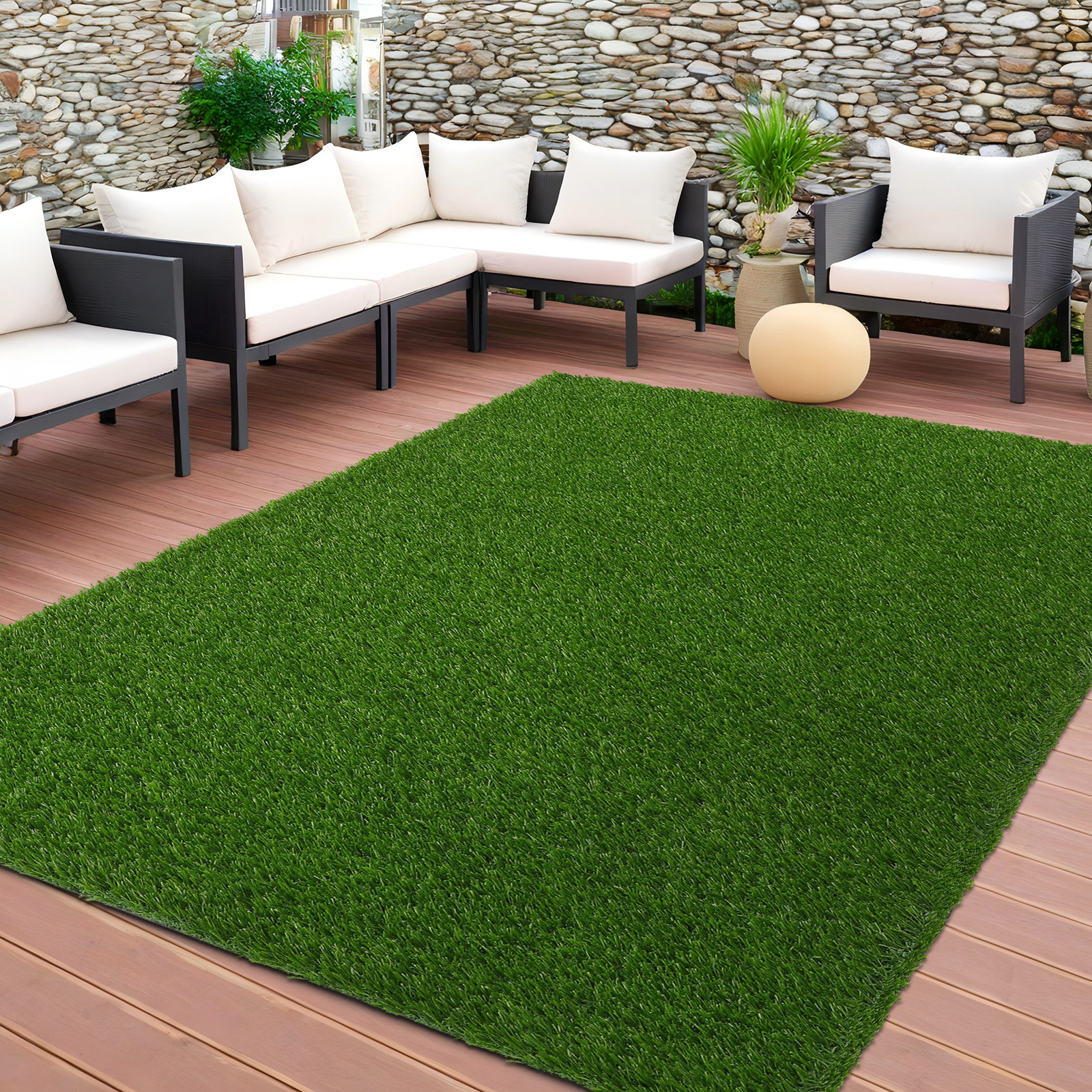Look Into the Environmental Perks of Opting for Synthetic Grass Solutions
The adoption of artificial turf options presents an engaging possibility to attend to pushing environmental obstacles. By substantially lowering water use and lessening the application of hazardous chemicals, these choices not just advertise sustainable landscape design but also secure neighborhood communities.
Water Preservation Perks
One of the most substantial advantages of synthetic lawn is its ability to preserve water. In comparison, synthetic turf does not require watering, dramatically reducing the general demand for water resources.
By getting rid of the requirement for routine watering, fabricated turf adds to lasting landscape practices and assists alleviate the environmental effect of too much water intake. In addition, the preservation of water includes the reduction of drainage, which can result in dirt erosion and waterway contamination.
Additionally, the installment of fabricated lawn permits districts and property owners to allocate water resources a lot more successfully, concentrating on essential usages such as alcohol consumption water and agriculture. The shift towards man-made turf not only advertises accountable water use but also lines up with more comprehensive environmental goals intended at maintaining natural deposits.
As areas significantly focus on sustainability, the water preservation advantages of artificial grass offer an engaging instance for its adoption in business and household landscaping jobs.
Reduced Chemical Usage
The shift to synthetic grass considerably reduces the dependence on chemical treatments typically used in all-natural turf maintenance. Conventional lawn management normally includes the application of herbicides, pesticides, and fertilizers to promote development and control insects. These chemicals can present threats to human health and wellness, neighborhood wild animals, and the setting, contributing to dirt and water contamination.
In contrast, man-made lawn removes the need for these damaging materials. As soon as set up, it needs marginal upkeep, primarily being composed of normal cleansing and infrequent infill replenishment. This reduction in chemical use not just profits the instant atmosphere however additionally contributes to more comprehensive eco-friendly stability. By decreasing the release of synthetic compounds into the ecological community, synthetic grass promotes healthier soil and water systems.
Furthermore, the lack of chemical runoff related to synthetic lawn installments helps secure regional rivers from pollution, sustaining aquatic life and maintaining biodiversity. Phoenix turf companies. As areas progressively focus on sustainable practices, opting for man-made lawn offers a practical remedy that lines up with ecological conservation goals. Through this change, residential or commercial property owners can enjoy rich environment-friendly spaces without endangering eco-friendly wellness, leading the means for an extra lasting future
Lower Carbon Impact

In addition, the installation of artificial grass can lead to significant water conservation. All-natural grass require considerable amounts of water for irrigation, which not only contributes to the carbon footprint related to water extraction and treatment however likewise stress neighborhood water resources. In contrast, artificial turf requires minimal upkeep, requiring no watering, therefore considerably decreasing water use and its linked energy expenses.
Additionally, the durability of synthetic grass contributes to its reduced carbon influence. With a life expectancy of as much as 15 years or even more, the demand for frequent substitutes is reduced, causing less waste and reduced power intake in manufacturing and throwing away Arizona turf conventional grass alternatives. Overall, synthetic grass presents a sustainable choice for environmentally conscious landscaping.
Environment Preservation
Environment preservation is an important factor to consider in the debate over landscaping selections, especially when contrasting artificial turf to all-natural grass. Natural yard lawns usually require considerable upkeep, consisting of making use of chemicals, fertilizers, and herbicides, which can adversely impact regional ecological communities. These chemicals can seep right into the dirt and waterways, harming indigenous flora and animals and interfering with local environments.
On the other hand, man-made lawn presents an opportunity to decrease the eco-friendly footprint of landscape design. By opting for artificial grass, property owners can decrease the interruption of all-natural environments related to conventional grass care practices. Synthetic grass gets rid of the need for unsafe chemicals, thereby protecting close-by wildlife and keeping the honesty of surrounding ecological communities. Moreover, the installment of synthetic grass can lead to the conversion of former turf areas right into even more biodiverse landscapes, such as pollinator yards or native plant areas, which can support regional wildlife.
Ultimately, the change to synthetic grass not just conserves water and minimizes maintenance efforts however likewise promotes a much more unified partnership in between human tasks and the native environment, promoting habitat conservation at the same time.
Long-Term Sustainability
Long-term sustainability is a crucial consider assessing the advantages of synthetic grass over standard yard lawns. One of one of the most substantial benefits of synthetic grass is its durability; it can last up to 15-20 years with very little maintenance, whereas natural lawn requires frequent reseeding and replacement. over here This durability lowers the requirement for consistent resources, such as water, fertilizers, and chemicals, which are crucial for maintaining a healthy and balanced yard lawn.
Furthermore, synthetic grass adds to a reduction in carbon emissions connected with lawn care devices. Typical yards usually call for gas-powered lawn mowers, leaners, and blowers, all of which contribute to air contamination. Artificial turf companies phoenix. On the other hand, synthetic turf removes the requirement for such equipment, advertising a cleaner setting
Additionally, the production of navigate to this site man-made turf increasingly utilizes recycled products, boosting its sustainability profile. As producers embrace eco-friendly practices, the environmental impact of synthetic grass continues to diminish.

Final Thought
The fostering of synthetic grass remedies provides substantial environmental benefits, consisting of substantial water preservation, minimized dependence on harmful chemicals, and a lower carbon footprint. Furthermore, artificial lawn aids in preserving all-natural habitats by lessening land disruption and advertising long-lasting sustainability through the use of resilient products. Collectively, these factors underscore the capacity of synthetic grass to add positively to environmental wellness and use a sensible option to conventional landscaping practices in an increasingly resource-conscious world.
In contrast, man-made grass does not need watering, dramatically lowering the general need for water sources. By lessening the release of artificial compounds right into the ecosystem, man-made grass promotes much healthier soil and water systems.
Furthermore, the installation of artificial grass can result in significant water conservation. In comparison, fabricated lawn needs very little upkeep, calling for no watering, therefore considerably reducing water use and its associated energy costs.
